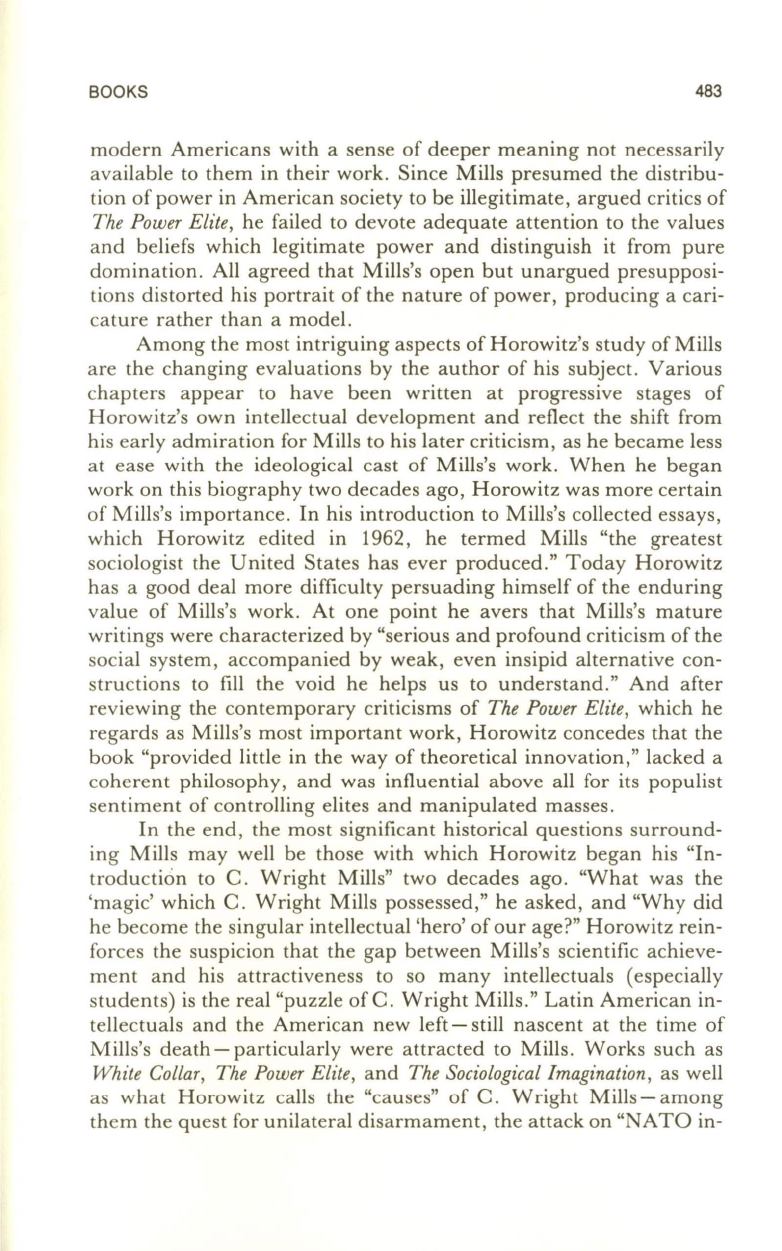
BOOKS
483
modern Americans with a sense of deeper meaning not necessarily
available to them in their work. Since Mills presumed the distribu–
tion of power in American society to be illegitimate, argued critics of
The Power Elite,
he failed to devote adequate attention to the values
and beliefs which legitimate power and distinguish it from pure
domination. All agreed that Mills's open but unargued presupposi–
tions distorted his portrait of the nature of power, producing a cari–
cature rather than a model.
Among the most intriguing aspects of Horowitz's study of Mills
are the changing evaluations by the author of his subject. Various
chapters appear to have been written at progressive stages of
Horowitz's own intellectual development and reflect the shift from
his early admiration for Mills to his later criticism, as he became less
at ease with the ideological cast of Mills's work. When he began
work on this biography two decades ago, Horowitz was more certain
of Mills's importance. In his introduction to Mills's collected essays,
which Horowitz edited in 1962, he termed Mills "the greatest
sociologist the United States has ever produced." Today Horowitz
has a good deal more difficulty persuading himself of the enduring
value of Mills's work. At one point he avers that Mills's mature
writings were characterized by "serious and profound criticism of the
social system, accompanied by weak, even insipid alternative con–
structions to fill the void he helps us to understand." And after
reviewing the contemporary criticisms of
The Power Elite,
which he
regards as Mills's most important work, Horowitz concedes that the
book "provided little in the way of theoretical innovation," lacked a
coherent philosophy, and was influential above all for its populist
sentiment of controlling elites and manipulated masses.
In the end, the most significant historical questions surround–
ing Mills may well be those with which Horowitz began his "In–
troduction to C. Wright Mills" two decades ago. "What was the
'magic' which C. Wright Mills possessed," he asked, and "Why did
he become the singular intellectual 'hero' of our age?" Horowitz rein–
forces the suspicion that the gap between Mills's scientific achieve–
ment and his attractiveness to so many intellectuals (especially
students) is the real "puzzle of C. Wright Mills." Latin American in–
tellectuals and the American new left - still nascent at the time of
Mills's death - particularly were attracted to Mills. Works such as
White Collar, The Power Elite,
and
The Sociological Imagination,
as well
as what Horowitz calls the "causes" of C. Wright Mills-among
them the quest for unilateral disarmament, the attack on "NATO in-


